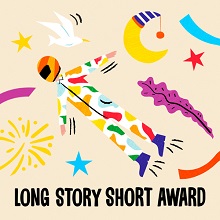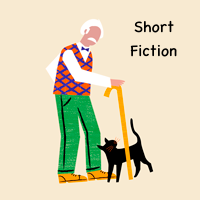It's hot today. I'm glad they built no tent
though men will come just to watch women now.
This
...
[+]
“Come here, I have one last thing to teach you,” said the master.
“It doesn’t matter anymore,” said she. “They’re invincible, those creatures of darkness. They are the very incarnation of the hatred of men. Not even you could defeat them.”
The master took a talisman from his pocket and held it out weakly to his student. “We are not powerful, the world is,” began the master. “We are but channels. This here is the source of my power. There is still hope.”
She took the talisman and immediately the master began to weaken. She bent down to hear what his master wanted to say to him.
“To activate it, you must say the first word of power,” said the master.
“Words have no power, they are illusions.”
“No there is one word that was at the beginning of time, a universal note, and is the key to linking the physical and the spiritual. But beware of channeling it; it can consume you.” With that the master whispered the word into her ear and died.
***
I wake up. A body sprawls beside me. I gasp in horror.
Memory comes to me: a troop of the undead hemmed us in. Us? Master and I. Spell cast, Master collapsed. We retreated.
Master is the body. The undead are outside.
The underground chamber is protected by Master’s last chant, and its effect is dwindling away. The talisman is in hand yet what is the word – the first word of power – that I must say?
The feel of Master’s exhalation still lingers about my ear. A feeble whisper, an obscure syllable. The more I concentrate the more slippery is the recalling of the word.
Once remembered, things will not be forgotten. They just have not been called to mind. I need a trigger, a moment to recover that wispy stretch of memory. So, I head towards the cubicle of our library and bury myself in words: myths, histories, plays, stories, and poems. I’ve to be exposed to as many linguistic stimuli as possible so that if I am fortunate enough, I can come across the word again.
The whole process is rather painful. My eyeballs are aching. My mind is deteriorating. I would rather only perceive the visual signifier and simulate its sound. But the signified constantly intrudes and arbitrarily generates meanings in my mind. I do not have time. I do not want to understand. I just need the form.
***
King James II plotted the abduction of his own son in person. The legitimate heir was sold in his infancy and mutilated by the child-buyers. His ankles were pierced and tied up. The boy was supposed to have his feet swollen to death. But eventually, the infant was adopted. He lived a happy life in Corinth until being informed of his fate: committing patricide and incest with his mother. In order to escape the fate, he left home and set off for where lived his birth parents – the king and queen of Thebes. Here and now, he had not yet known whom he would kill by mistake. At the royal castle, he visited his real mother. In the queen’s bedchamber, upon hearing a noise behind a tapestry, he stabbed wildly and killed Polonius, the father of his lover. The king Claudius, who was worried about his own safety, sent him to England with a sealed letter requesting his immediate execution. But his company cast him off. Ironically, the ship lost in the storm and sank in the English Channel, with all hands. But the prince miraculously returned and reunited with his loyal friend Horatio. They secretly attended a burial only before he realized that Ophelia, his lover, was the body. He revealed himself, proclaiming his love for her. He then walked, as though in a trance to the edge of a ship, speaking to his lover, and threw himself into the water.
***
I think I still have not encountered the word. No sound can ring a bell. And I cannot help but keep interpreting the useless nonsense of a prince’s revenge after he gets his father killed and before he dies together with his lover.
I do not know. I cannot see the difference. I cannot remember. But I can feel that writers are a pack of fools, especially those well-known ones. They usually get into ecstasy while others hold their pen. Occasionally, we are able to pick up some good originality. But even if they are good, they are of limited goodness, measurable goodness, and well-known goodness. The magnificence, therefore, lies more in those writers who are beyond measurement. The worth of their writings is of more possibilities and inconceivable volume.
Whenever we know something, we name it. Names and words are representatives of the known, eclipsing our anxiety of the unknown. Words are not just illusions; they are limits. The first word of the world is the first try of creating boundaries.
As I skim though piles of scholarly works, words seem to respond to what I have read earlier. They make me angry and amused. On the one hand, I only need the forms, but the meanings keep flooding in. On the other hand, their analyses are so funny that I nearly enjoy myself. In order to make their critiques unbreakable, either they never assert anything, or they never make sense. It is highly productive yet largely void. I do not bother. When people use language, they are always using a language only they know anyway.
Now I know I am going to die. I am so preoccupied. The undead have broken in, in front of me. I won’t recall the word. I, in fact, cease to see the difference. This word or that word, I die, or others die, this second or the next second. We live in repetition not progress. We value the unknown rather than the known. Tomorrow cannot be plotted as better because once you know it is better, it loses all the possibility of but better. Tomorrow is random. The future is unknown. The next second is bound to deviate from the previous in an angle that is forever uncertain. Someday accidentally, the course of a second does or does not meet the next; the history does or does not recur.
I doubt whether Master has said anything. I think he says none.



